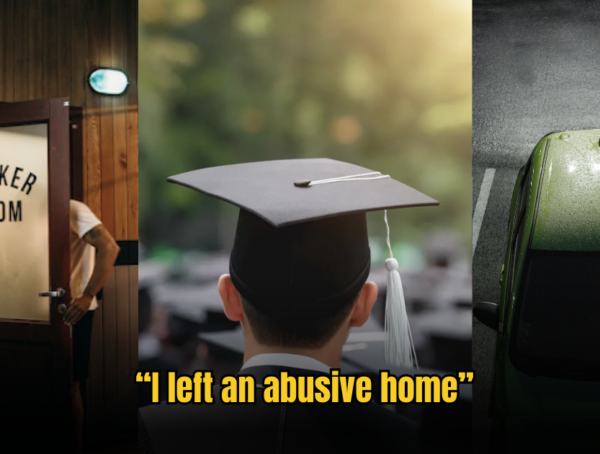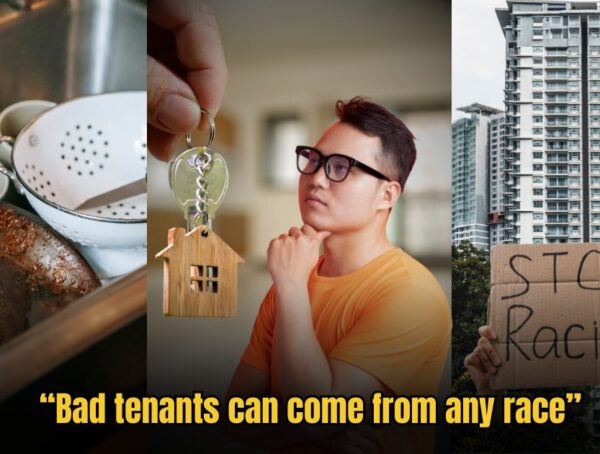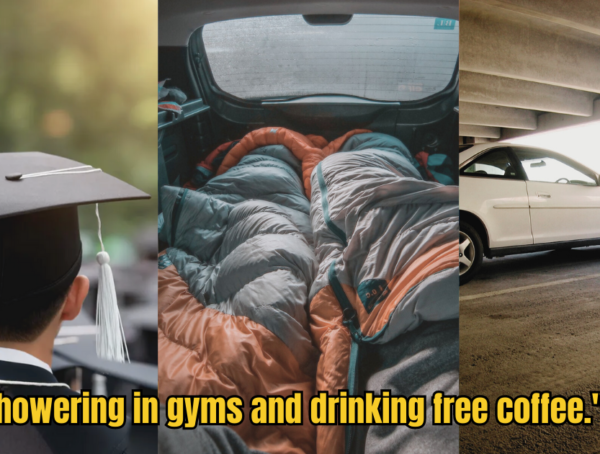Funn is a passionate soap maker – by recycling waste cooking oil. We sat down with her to have a chat about how it all started.
Hi there! Can you tell us a little about yourself?
Hi! My name is Funn, and I make natural handmade soap from waste cooking oil.
For the past 2 years, I’ve been a part of a community project named “Sustainable Soap Making.” This project is a community initiative that started in Bangkok under Bangkok Soap Opera – Soap Opera KL is the sister branch.
Bangkok Soap Opera had the idea to turn waste oil into natural soap. They work with business owners and individuals, showing a new way of recycling for big cities. They help Bangkok become greener.
Inspired by their example, we brought this project to KL. We try our best to make Kuala Lumpur green!
Recently, I was a part of a collective effort to recycle 25 liters of waste cooking oil into 500 bars of beautiful soap! These soaps were given to native villagers (Orang Asli) in Raub, Pahang.
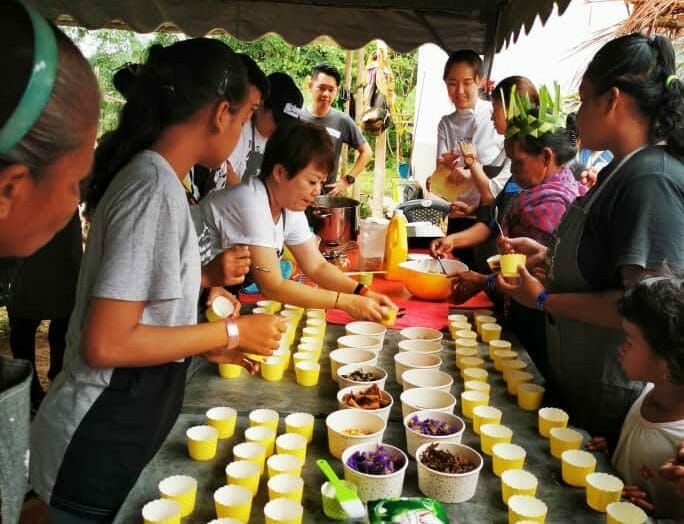
Why do you use waste cooking oil?
Business owners in the food industry commonly dispose the used cooking oil directly into the city’s drains.
Sometimes, they sell the oil to 3rd-party to produce black oils. Drains will get blocked and floods happen. It’s a type of pollution in the city.
All these harmful acts will cause our rivers and seas to get more polluted. This will end up coming full circle, affecting our drinking water. It’s a chain.

How much cooking oil do hawker centres throw away every day?
According to Kursus Kesedaran Penggunaan Perangkap Minyak Untuk Pihak Berkuasa Tempatan (Pbt) Tahun 2014, an estimated 26,460 liters of used cooking oil is dumped into Malaysian drains every day.
That’s almost 800,000 liters a month, or 9 million liters a year!
That’s where we come in – we turn waste oil into soap, and we share and teach this knowledge on how to transform trash into treasure.
Soap making workshops are our main source of revenue, but on the other hand, we do this community project as a way to give back to society. Anyone can do it from home.
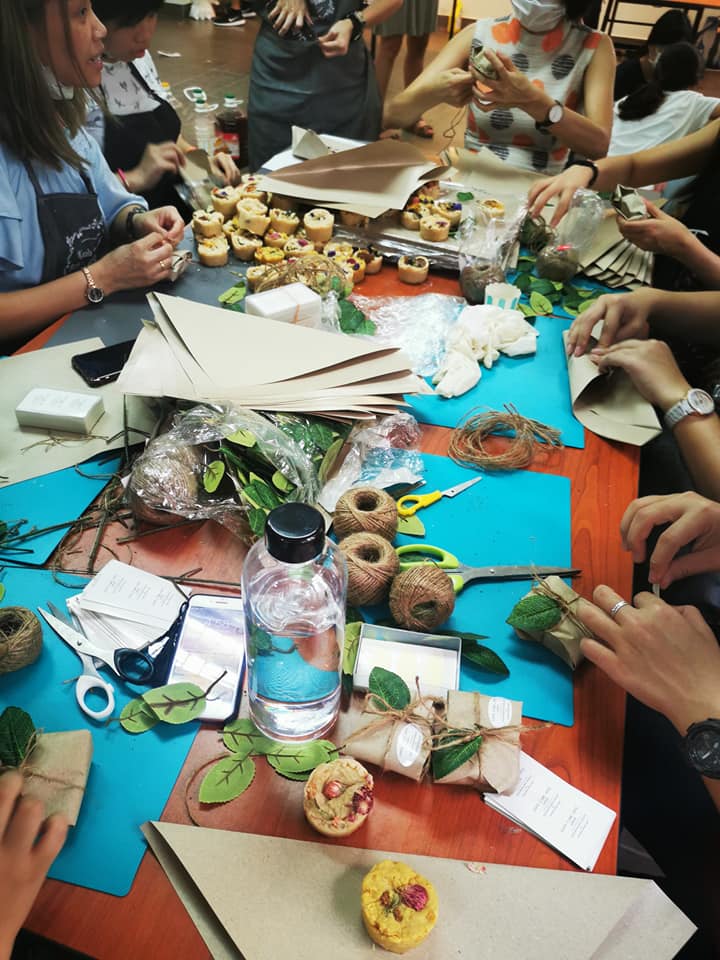
Isn’t the oil too dirty or unsanitary?
Not at all! Filtering waste cooking oil can be done through water and local herbs.
Our real aim is getting rid of the excess of food, bad odour and burnt particles in the oil to be filtered off. The impurities and particles of food are then disposed of together with water.
If there are any smell and color left it will be destroyed through saponification.
In the saponification process, we mix the cooking oil and some concentrated lye and heat it up. When left to cool, the result is filtered out, washed with distilled water, and laid out to dry.

Can you use any type of cooking oil?
Any type of oil can be used in soap-making. Each type will add different qualities to the made soap.
Some oils make it more bubbly and some less. Some oils shorten the shelf life of the soap, and so on. But when we recycle, we do not choose the oil – we just recycle what is given to us.
Why do you hold workshops? Wouldn’t selling the soaps be more profitable?
When I first started many people asked me, “If you teach people how to make their own soaps, won’t they stop buying your products?”
But our main goal isn’t profit, the goal is awareness. I want to educate people on the environment. Imagine if people start doing it at home – it could even become a movement!
We are okay if everyone stops buying chemicals and makes their own cosmetics, as long as people become more environmentally responsible at the same time.
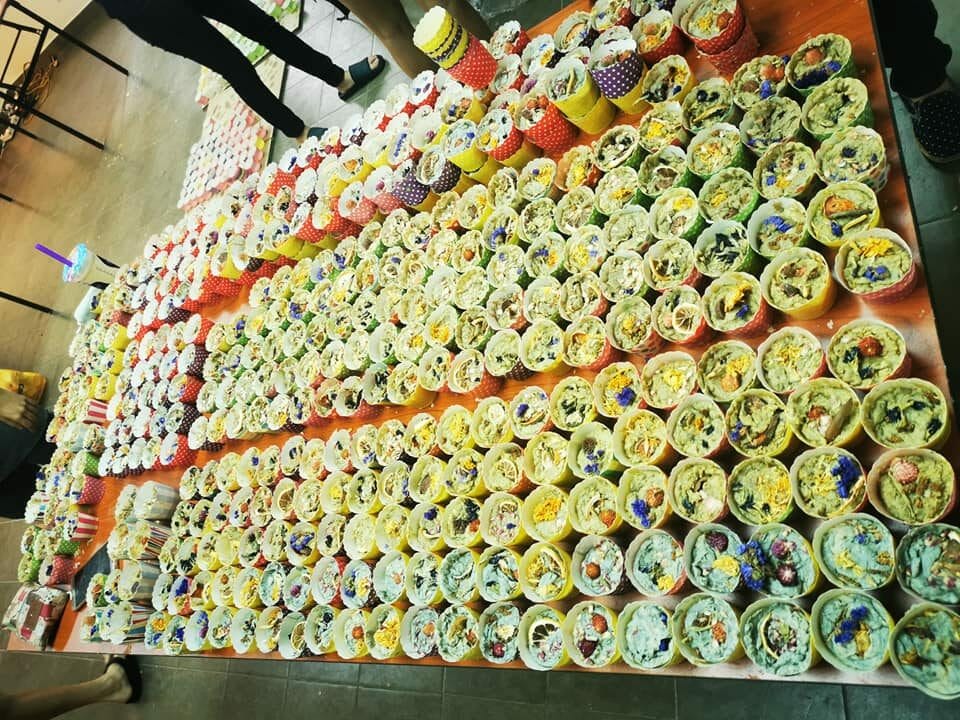
[lp219wow day – 500 soap bars made for the orang asli community in kampung semalin. ]
What are you excited for in the future?
For 2020, there are two things in my bucket list: Our first “KL Biggest Bar of Soap” event, and getting KL’s shopping malls to use our liquid soaps made from waste cooking oil in their public washrooms.
KL Biggest Bar of Soap is a planned event where we intend to make the biggest bar of soap ever. We’ve taken the amazing event hosted in Bangkok for inspiration.
What was the event in Bangkok you’re getting the inspiration from?
Earlier this March, Bangkok Soap Opera made Bangkok’s Biggest Bar of Soap, made possible due to 130 people gathered for the community project. Within just 3 hours, this massive 120kg soap bar of pure soap was born.
This gigantic soap bar was cut up into regular sized cubes and donated to three charity homes.
Bangkok Soap Opera grows sustainable soap making project on different levels in Bangkok: One, connecting to Business owners, to help them recycling waste oil safely; and two, connecting to schools by educating kids on how to turn trash into treasure.
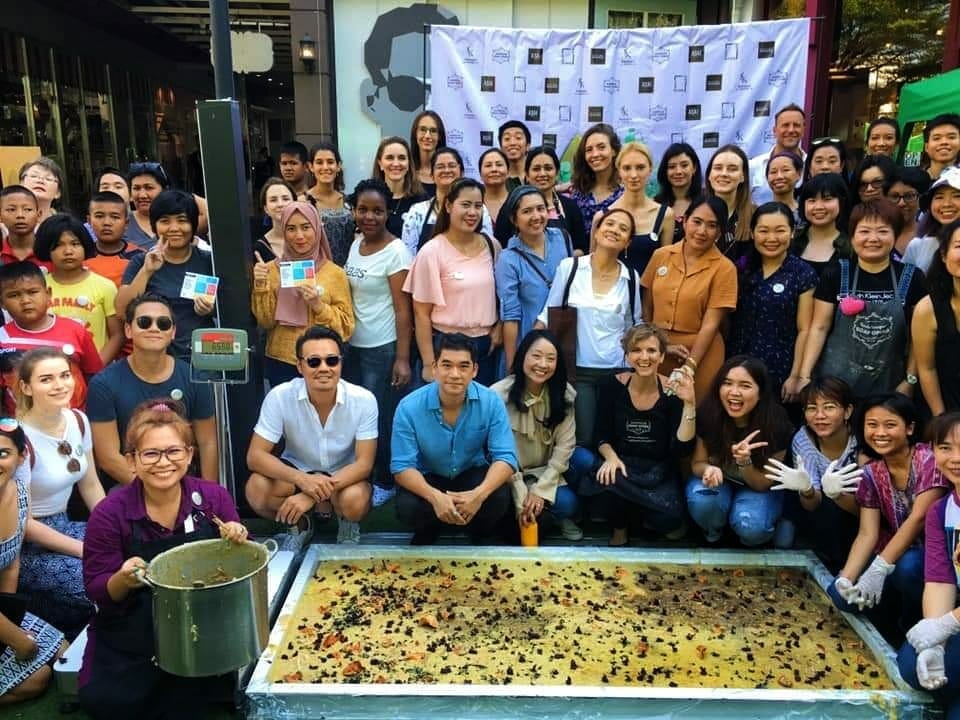
[picture: funn at the bangkok’s biggest bar of soap event in 2019]
It’s also our dream to get various shopping malls in KL on board with our soaps made from waste cooking oil. There are a few malls already who are forward-thinking, but we still need to raise awareness about how its not just possible to make soap from waste cooking oil – it’s the right way forward!
I’m interested in learning more about Soap Opera KL. Where do I start?
You can join us in the next upcoming Soap Making with Waste Cooking Oil workshop at Soap Opera Kuala Lumpur. Check out our FB page or email moc.liamg@lkarepopaos! Stay tuned and get involved! Everyone can bring the change they believe in!
For more stories about personal entrepreneurship, read How a Jobless Youth Became Cikgu Lan to Help More Than 8000 School Kids and From Selling Books to Thousands of White Shirts. How did Oxwhite founder CK Chang do it?

You might also like
More from Real People
‘A RM100 fee cost a company 5 years of revenue’ shares M’sian
This story is about a Malaysian who learned that bureaucracy can be defeated simply by not arguing with it.A billing …
‘I quiet-quit, upskilled, and tripled my salary,’ shares M’sian engineer
This story is about a Malaysian who learned that loyalty without leverage leads nowhere in the corporate world.After years of …
‘I did everything right, and it still wasn’t enough’ shares M’sian graduate
This story is about a Malaysian graduate navigating big dreams in a job market where a degree no longer guarantees …






